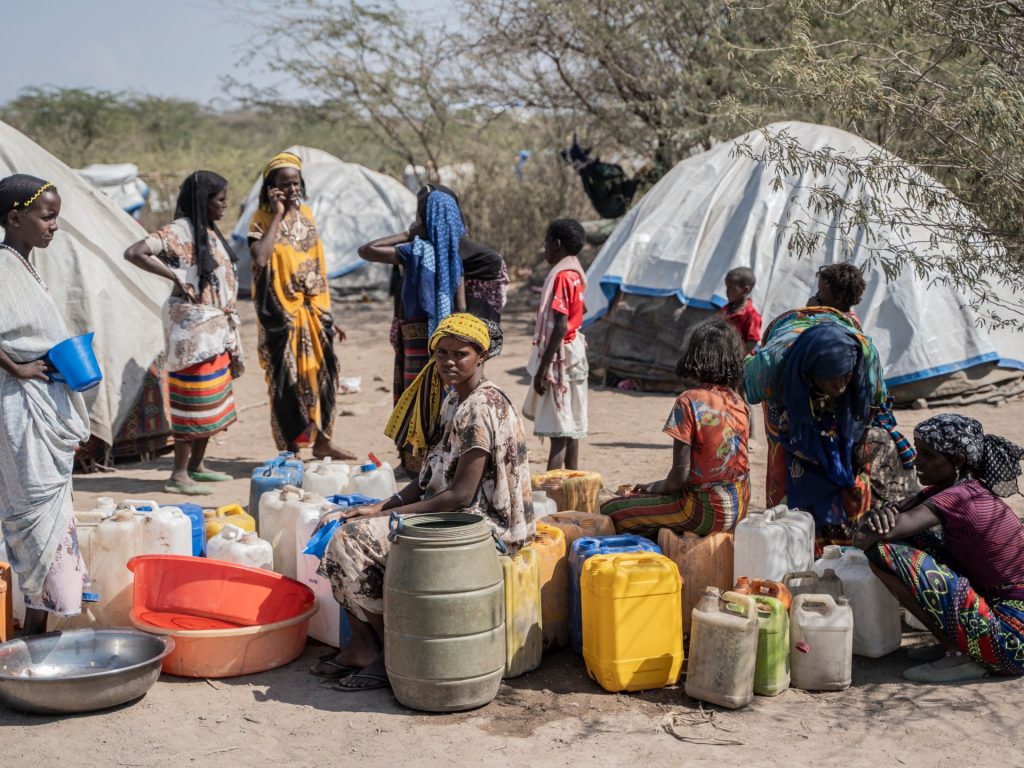Aid to 3.6 million Ethiopians overall is at risk unless new support is sourced, the World Food Programme warns.
The **World Food Programme (WFP)** has delivered a sobering announcement: it is compelled to **suspend vital aid** for **650,000 malnourished women and children** in Ethiopia due to a critical **funding shortfall**. This decision comes as the agency underscores a pressing reality: **3.6 million people** across Ethiopia may soon find their access to essential food supplies jeopardized unless new financial support is secured without delay.
“**WFP is being forced to halt treatment for 650,000 malnourished women and children** in May due to insufficient funding,” the UN agency stated, emphasizing the dire implications of the current crisis. Originally, WFP aimed to provide **life-saving nutrition assistance** to **two million mothers and children by 2025**, but with a staggering projected **funding gap of $222 million** between April and September, these goals now appear dangerously out of reach.
Moreover, WFP has warned that **cash and in-kind food assistance** for upwards of **one million refugees will cease by June** if additional resources are not mobilized swiftly. This is a stark reminder that **support for humanitarian efforts** is more critical than ever, especially given the significant challenges facing Ethiopia.
Conflict, Instability, and Drought: The Overarching Crisis
The **interplay of conflict, instability, and drought** stands at the core of Ethiopia’s humanitarian crisis, leaving more than **10 million of the country’s 130 million inhabitants** facing the grim reality of hunger. The aftermath of a **brutal civil war** that raged for two years in the northern Tigray region—culminating in November 2022—has left the country in turmoil, with estimates of **over 600,000 fatalities**.
As if that weren’t enough, tensions are once again simmering between **Ethiopia and Eritrea**, primarily over Addis Ababa’s quest for maritime access. This resurgence of frictions evokes concerns over potential renewed conflict in the **Horn of Africa**, less than a decade after the two nations had **re-established diplomatic ties** in a historic event.
The **WFP** has also highlighted ongoing **violence and instability** in Ethiopia’s Amhara region, which complicates already precarious humanitarian operations. The agency points out that the forecast of **below-average rainfall through May** in southeastern Ethiopia could further degrade conditions, compounding the challenges faced by millions of vulnerable citizens.
The Call to Action: Addressing the Funding Gap
In light of this impending crisis, global stakeholders are implored to take immediate action. The **WFP’s mission cannot be understated**, as it stands on the frontline combating malnutrition and hunger. With **food aid** and nutritional support teetering on the brink of suspension, the international community must respond to this urgent plea for assistance.
A collaborative effort involving governments, international organizations, and private entities is **essential** to avert a humanitarian disaster. As we reflect on this situation, we must remind ourselves that the lives of **millions** hinge on our shared humanity and willingness to act.
For more insights on global humanitarian efforts and food security challenges, check out this in-depth article on [food security in the Horn of Africa](https://www.aljazeera.com/news/2023/6/12/food-insecurity-horn-of-africa).
As Ethiopia grapples with these formidable challenges, we must be vigilant and proactive in ensuring that aid flows, so that **no child or mother is left behind**. The time to stand in solidarity is now, not tomorrow.






